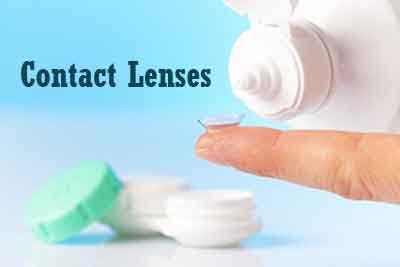- Home
- Editorial
- News
- Practice Guidelines
- Anesthesiology Guidelines
- Cancer Guidelines
- Cardiac Sciences Guidelines
- Critical Care Guidelines
- Dentistry Guidelines
- Dermatology Guidelines
- Diabetes and Endo Guidelines
- Diagnostics Guidelines
- ENT Guidelines
- Featured Practice Guidelines
- Gastroenterology Guidelines
- Geriatrics Guidelines
- Medicine Guidelines
- Nephrology Guidelines
- Neurosciences Guidelines
- Obs and Gynae Guidelines
- Ophthalmology Guidelines
- Orthopaedics Guidelines
- Paediatrics Guidelines
- Psychiatry Guidelines
- Pulmonology Guidelines
- Radiology Guidelines
- Surgery Guidelines
- Urology Guidelines
Sleeping in your contact lenses -You may lose your eyesight

If you ares sleeping in your contact lenses -You may lose your eyesight is the stern message which emerges of Six tales on eye infections featured in the January issue of Annals of Emergency Medicine .These stories have been reported with help of a partnership between the Centers for Disease Control and Prevention (CDC) and the EMERGEncy ID Net, an emergency department-based collaborative surveillance network.
Contact lenses are worn by an estimated 45 million Americans. Improper care or wear, like going to sleep without removing your lenses, can lead to infections of the cornea like microbial keratitis, which can lead to serious health problems.The CDC reports that an estimated 1 million annual outpatient and emergency visits were due to keratitis.
"Sleeping in your contact lenses is risky and can lead to infections, or in some cases, permanent damage," said Jon Femling, MD, PhD, Assistant Professor, Department of Emergency Medicine, University of New Mexico School of Medicine and lead author. "Falling asleep, or even napping, without removing your contact lenses can significantly increase the likelihood of serious health problems."
The Annals of Emergency Medicine commentary is based on a CDC Morbidity and Mortality Weekly Report titled, Corneal Infections Associated with Sleeping in Contact Lenses - Six Cases, United States, 2016-2018. The original authors are Jennifer R. Cope, MD, Nuadum Muriel Konne, MPH, Deborah S. Jacobs, MD, Deepinder K. Dhaliwal, MD, Michelle K. Rhee, MD, Jia Yin, MD, PhD, Thomas L. Steinemann, MD.
In one case, a man evaluated for eye redness and blurry vision reported sleeping in contact lenses 3-4 nights per week and swimming with them. He was treated for bacterial and fungal microbial keratitis.
Another instance outlines an adolescent girl who slept in lenses purchased without a prescription at a chain drug store. She developed a corneal ulcer that resulted in scarring.
A man who wore the same lenses for two weeks was diagnosed with a perforated cornea, bacterial infection and ultimately required a transplant to save his right eye.
To prevent eye infections, the CDC recommends the following:
- Wash hands before touching contact lenses.
- Remove contact lenses before bed, showering or swimming.
- Rub and rinse contact lenses with disinfecting solution every time they are removed.
- Replace old contact lens solution with fresh solution every time you store your contact lenses in a case.
- Clean contact lens cases after each use.
- Replace contact lens cases at least once every three months.
"Sleeping in lenses is one of the riskiest and most commonly reported behaviours for adolescent and ,risky ,behaviour,adult contact lens wearers," said Dr. Femling. "If you want to avoid infection, and avoid a trip to the emergency department, proper eye care is a must."

Disclaimer: This site is primarily intended for healthcare professionals. Any content/information on this website does not replace the advice of medical and/or health professionals and should not be construed as medical/diagnostic advice/endorsement or prescription. Use of this site is subject to our terms of use, privacy policy, advertisement policy. © 2020 Minerva Medical Treatment Pvt Ltd